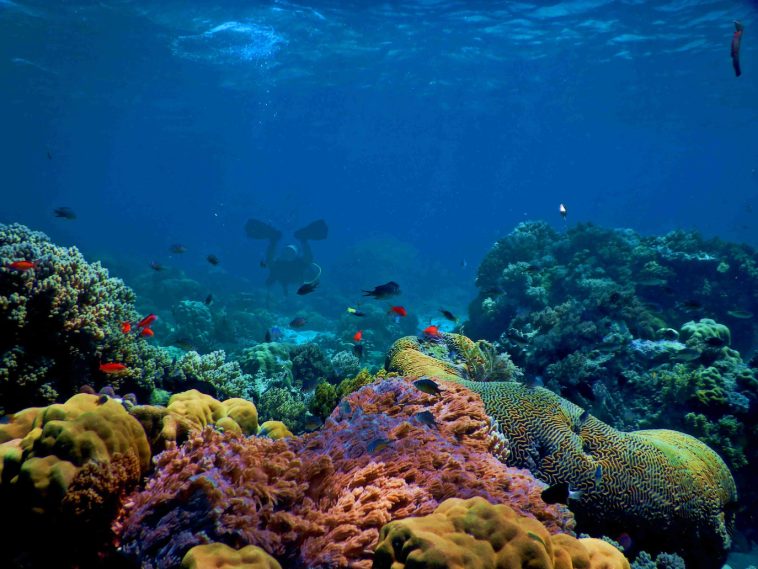Are you curious about how much an underwater welder makes? If you’re looking for a career change that offers both adventure and financial stability, then becoming an underwater welder may be the perfect fit. In this article, we’ll break down everything you need to know about what it takes to become an underwater welder and exactly how much they make per hour. Read on to find out if this job is right for you!
Page Contents
Overview of Underwater Welding
Underwater welding is an exciting and unique type of welding that is used to repair or construct structures underwater. This process requires specialized training and safety precautions, as well as a great deal of skill, since it involves performing welding operations while submerged in water. While the environment can be hazardous, the rewards are immense; undersea welders benefit from some of the highest salaries in their field and get to experience a truly one-of-a-kind job.
The Dangers & Requirements for Underwater Welding
Underwater welding poses certain dangers for its practitioners, especially due to potential electric shock. The welder must use specialized tools including an air compressor and dry suit – which allows them to breathe oxygen through a regulator – to safely complete their task. Additionally, they must often work at extreme depths with powerful currents that can make maneuverability difficult and dangerous. As such, welders require extensive training before being able to perform any kind of underwater operation without supervision.
Moreover, welders need excellent physical fitness levels as they may have to stay underwater for long periods at a time when carrying out complex tasks; this may involve lifting heavy objects or using large machinery on occasion too! Those who take up this profession also require strong problem solving skills in order to assess each situation accurately before proceeding with the job. Finally, because safety is paramount in these situations above all else – experienced divers should always accompany those undertaking deep sea diving jobs whenever possible
Training and Education Necessary for Underwater Welders
Becoming an underwater welder is no easy feat. It requires a special combination of skills, physical strength and mental fortitude that many people don’t possess. This career path is highly specialized and those who pursue it must be willing to dedicate themselves to learning the trade through extensive training and education.
The first step in becoming an underwater welder is obtaining certification from the American Welding Society or another nationally recognized certifying body. Obtaining this certification will require passing tests on safety protocols, welding techniques, as well as undergoing hands-on practical training in a variety of welding methods appropriate for subsea use. Additionally, aspiring welders should seek out courses offered by private organizations specializing in underwater welding instruction or apprenticeship programs that offer practical experience under the supervision of experienced professionals.
With such rigorous requirements necessary for success in this field comes great reward – both financially and mentally! Those who stay dedicated to their craft can find themselves with a rewarding career that offers stability and satisfaction knowing they are part of something larger than themselves: keeping our oceans safe from harm through repair work done safely, accurately and efficiently beneath its surface!
How Much Does an Underwater Welder Make Per Hour?
Underwater welding is a specialized form of welding that requires highly trained and experienced professionals. This type of welding typically takes place in deep water and often combines extreme pressure with hazardous materials, making it a difficult but rewarding career for those who pursue it. As such, the pay for underwater welders can vary widely depending on their experience level and the specific job they are doing.
On average, most underwater welders make about $30 -$50 per hour (or more), depending on where they are located, how much experience they have, and what type of job they’re working on. In general, an entry-level welder will make closer to $30 while an experienced one could earn up to $50 or more per hour. It’s important to consider that some jobs may require additional certification or special equipment which could increase the hourly rate even further; however this isn’t always necessary when starting out as an underwater welder.
Other factors that can affect salary include location (as different parts of the world may offer higher wages) and company size/type (such as large engineering firms versus smaller independent operations). Additionally, those who specialize in certain types of work like pipeline repairs may also be able to negotiate higher rates than generalists due to their expertise in specific areas. Lastly, many employers offer overtime pay for longer shifts or night time/weekend work which can add significantly to an underwater welder’s overall income potential!
Factors That Impact Wages for Underwater Welders
Underwater welders play an integral role in the oil and gas industry, professionally welding underwater to repair pipelines, vessels, and other infrastructure. The complex nature of their job requires unique skillsets and specialized knowledge. As such, they are highly sought after by employers due to the criticality of their work. While there is no definitive salary for underwater welders – as wages can vary greatly depending on location, experience level, and more – it’s important to understand what factors influence salaries so you can make informed decisions when looking into this profession.
Location plays a big role in determining wages for underwater welders; with jobs being concentrated around various coastal areas where offshore drilling is popular, geography has a large impact on pay rates. Other variables like skill set required (including certifications), experience level (i.e., how long someone has been working as an underwater welder), availability of local talent pool (which affects competition for positions) also have an effect on wages for these professionals. Furthermore, larger companies tend to offer higher salaries than smaller ones due to their ability to better compensate workers at a higher rate thanks to larger budgets that come from greater profits or resources available through bigger markets/clients base . Additionally:
• Benefits packages provided by some employers may be included in overall compensation calculations
• Certain projects may include bonuses or hazard pay if they involve particularly risky tasks
• Union membership can provide additional benefits like health insurance coverage or retirement plans
• Government regulations related labor laws which could affect minimum wage thresholds in certain locations
Strategies to Maximize Earnings as an Underwater Welder
Underwater welding is a difficult, but rewarding job. It requires specialised skills and equipment to be successful in this profession. Although the financial rewards can be great, there are some strategies that can help maximize your earnings as an underwater welder.
Before you even begin working as an underwater welder, it’s important to make sure that you have the appropriate qualifications and certifications required to work safely and effectively in this specialized field. Having these credentials will not only ensure your safety while on the job, but also give potential employers confidence in hiring you for their projects. Once you’ve obtained all of the necessary certifications and qualifications needed to pursue a career as an underwater welder, there are several steps that can be taken to maximize earning potential:
• Stay up-to-date with industry trends – Staying informed about new developments or advancements within the industry will help keep your skills sharp and relevant for future employers. This could involve following industry news online or attending conferences related to underwater welding topics such as welding techniques or safety protocols.
• Pursue additional certifications – Obtaining additional training or certification related to specific aspects of welding (like deep sea diving) may open more doors for higher paying jobs since many employers require workers with advanced skill sets when performing certain tasks under water . Additionally , having a broader knowledge base from different types of certifications could increase one’s chances at landing better paying contracts than those without any extra training might receive .
• Consider freelance work – Working independently often leads to higher pay rates because companies don’t have overhead costs associated with employee benefits like insurance coverage or paid vacation time when they hire freelancers instead of full-time staff members . If possible , try negotiating directly with clients on payment terms rather than relying solely on staffing agencies which may offer lower wages due to their own profit margins .
Benefits on Being an Underwater Welder
Being an underwater welder is a unique and exciting career that affords many benefits to its practitioners. From the thrill of exploring the depths of the ocean to the financial rewards, this profession is one that should not be overlooked.
First and foremost, being an underwater welder provides access to some of the most interesting places in the world – beneath our seas and oceans. Here you can explore new environments, observe fascinating creatures in their native habitats, take part in scientific research projects or even witness historical shipwrecks up close! A love for adventure and exploration are essential qualities for any aspiring undersea welders out there.
In addition to all these wonderful opportunities, underwater welding also offers generous monetary compensation thanks to its highly specialized nature. With experience comes higher wages which can lead to job security as well as excellent insurance packages. The demand for qualified personnel means that there will always be work available so long as someone has what it takes! This makes it a great option if you’re looking for stability while still enjoying a bit of excitement each day!
Other advantages include:
• Working with cutting-edge technology – Underwater welding requires state-of-the-art equipment which keeps things fresh and exciting;
• Job satisfaction – No two days are ever alike when working underwater so boredom won’t be an issue;
• Possibility for travel – As jobs become available across different bodies of water around the world;
• Professional growth & recognition – Building on skillset & reputation within industry;
• Community involvement – Participating in various conservation efforts (e.g., coral reef restoration).
Types of Jobs Available to Professional Underwater Welders
Underwater welding is a specialized skill that requires both technical and physical knowledge. Professional underwater welders are highly sought after for their ability to perform complex tasks in challenging environments. Underwater welders can find employment in many different industries, from oil and gas to shipbuilding, construction, and more.
From offshore oil rigs to bridges, dams, or pipelines on the ocean floor – there are plenty of opportunities for professional underwater welders who have the experience and expertise needed to do the job safely and efficiently. Welding jobs often require working at great depths below the surface where pressure can be extreme. In addition to being able to work in difficult conditions with safety measures firmly in place, water welders must also possess strong problem-solving skills as well as good communication abilities when it comes time for collaboration with other professionals involved in each project.
In terms of specific types of jobs available – underwater welder duties may include fabrication or repair of steel structures such as ships’ hulls or production platforms; cutting through metal objects like pipelines; installing anchors into concrete surfaces; removing damaged parts from submerged vessels; repairing leaking pipes; carrying out inspections on submarines’ nuclear components ; constructing large steel structures such as dry docks or bridge supports; building marine habitats; joining sections of an undersea pipeline together using specialised welding techniques ; plugging leaks on old tanks by soldering new pieces onto them ; fixing penetrations made by corrosion over time ; performing maintenance operations on submersibles used for research purposes…and much more!
Wrapping it Up!
In conclusion, underwater welding can be a rewarding and lucrative career choice. It requires specialized training and safety education to become an underwater welder, but the rewards are worth it. With the right strategies, an experienced underwater welder can earn up to $200 per hour. Plus, they get to experience unique opportunities that many other professions don’t offer including working in exotic locations around the world! If you’re looking for a challenging yet exciting job with great earning potential, consider becoming an underwater welder today!
how much does a underwater welder make an hour
Frequently Asked Questions!
Q: How does an underwater welder’s salary compare to other welders?
A: An underwater welder can expect to make significantly more than a traditional welder, due to the increased complexity and skill required for this position. Generally speaking, an experienced underwater welder earns between $25 – $50 per hour depending on experience level and location.
Q: What are the physical requirements of being an underwater welder?
A: Working in extreme conditions puts additional strain on a person’s body compared to welding above water. Therefore, it’s important that underwater welders have good physical fitness levels and be comfortable swimming long distances wearing heavy gear. Additionally, many employers require that applicants hold current licenses or certifications related to diving safety before they will consider them for hire.
Q: Is there any special equipment used by underwater welders?
A: Yes! Underwater welders use specialized tools that allow them perform their duties safely while submerged under the surface of the water. This includes wetsuits designed for working at depths below 50 feet as well as air tanks with regulators that provide oxygen when needed during dives. Other equipment such as torches and electrodes may also be used depending upon the task at hand.
Q: What type of job opportunities are available for someone interested in becoming an underwater welder?
A; There is a wide range of potential job opportunities available for those who become certified in this profession including contract work on offshore oil rigs, nuclear power plants or large ships just to name a few possibilities. It’s also possible to find employment closer inland working on bridges or dams located near bodies of water such as rivers or lakes which require periodic maintenance via welding processes beneath its surface area(s).
Q: Are there any risks associated with being an underwater welder?
A; As with any job involving hazardous materials, there is always some degree of risk present when performing tasks related to welding beneath the surface of a body of water; however these risks can largely be minimized by following proper safety protocols and procedures established by your employer prior beginning each project/task given





